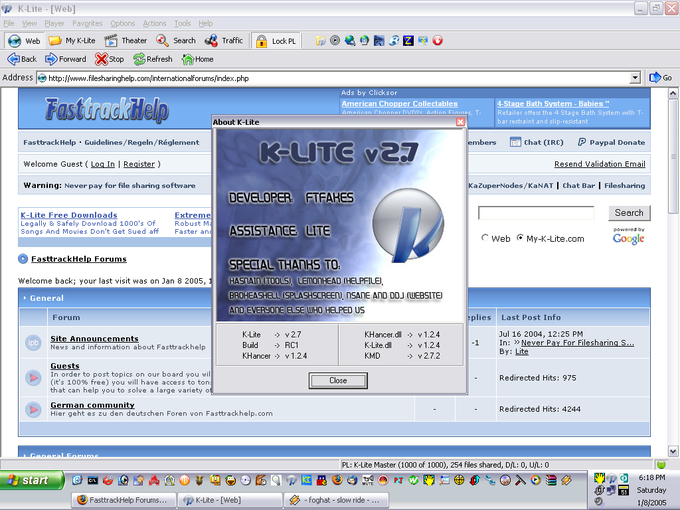
Sharman, which runs its servers in Denmark, obtained a license for Zennstrém's technology, FastTrack.

Ownership of the Kazaa interface went to Sharman Networks, a business formed days earlier in the South Pacific island nation of Vanuatu, another tax haven. Zennstrém, a Swedish citizen, transferred control of the software's code to Blastoise, a strangely crafted company with operations off the coast of Britain - on a remote island renowned as a tax haven - and in Estonia, a notorious safe harbor for intellectual property pirates. Days later, the company was reborn with a structure as decentralized as Kazaa's peer-to-peer service itself. That's because on a January morning three months after the suit was filed, Amsterdam-based went dark and Zennstrém vanished. Nor, as attorneys would soon discover, was there even a single outfit to shut down. Nikki Hemming, CEO of Sharman Networks, contracted by LEF Interactive, owner of Kazaa. With Kazaa, users trade files through thousands of anonymous "supernodes." There is no plug to pull. Only problem: Stopping Napster, which indexed songs on its servers, was easy - the recording industry took the company to court for copyright infringement, and a judge pulled the plug. Their goal was to shutter the service and shut down the tens of millions of people sharing billions of copyrighted music, video, and software files. That was the day every major American music label and movie studio filed suit against his company. On October 2, 2001, the weight of the global entertainment industry came crashing down on Niklas Zennstrém, cofounder of Kazaa, the wildly popular file-sharing service. And pity the poor copyright cops trying to pull the plug.

The users - 60 million of them - are everywhere around the world. The domain is registered Down Under, the corporation on a tiny island in the South Pacific.


 0 kommentar(er)
0 kommentar(er)
